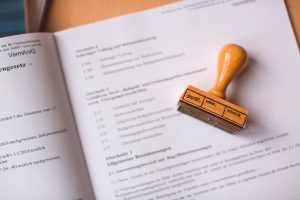What happens when a family member disagrees with the execution of a will, trust, or estate? Knowing causes of action and where they apply is the first step to understanding one’s rights to litigating trust and estate agreements.
During the legal process known as probate, potential beneficiaries can challenge a will or trust and enter litigation. The following list includes common causes of action for estate litigation: document forgery, breach of fiduciary duty, elective share, lack of formalities, undue influence, and lack of capacity.
Family members and loved ones of the decedent can find estate litigation and trust lawyers in Los Angeles complicated to parse, especially after suffering loss. This guide will explain the above six causes of action and where they might apply.
Forged Documents
This cause of action involves the suspicion that documents such as a will or trust agreement were forged, that signatures are not genuine, or that the documents were altered or fabricated in some way.
Breach of Fiduciary Duty
The representative of a testator (someone who has made a will or given a legacy), estate, or trustee must show fiduciary duties of honesty, care, and devotion. If a representative or trustee violates those duties, there is a cause of action for estate or trust litigation.
Elective Share
Some states dispense an “elective share” to the surviving spouse of the decedent. This distributes a set fraction of the decedent’s estate to the spouse according to a statutory formula.
Lack of Formalities
A last will and testament or a trust require that the testator, a witness, and two unrelated parties sign the related documents. If a will or trust was not correctly and legally written, witnessed, or signed, then there is a valid cause of action.
Lack of Capacity
Testators must be mentally competent to make a will, testament, or trust. They must understand their complete assets and how their executor will distribute their assets. If a medical diagnosis determined a testator is or was mentally incompetent when they wrote their will or trust agreement, then a potential beneficiary can litigate the will or trust and potentially have it declared void.
Follow this link for a more complete definition of mental capacity in testators: https://www.law.cornell.edu/wex/sound_mind_and_memory
Undue Influence
When someone close to the testator, often a family member or friend, confidante, or health care worker, forces or compels the testator to execute a will, trust, or estate agreement, potential beneficiaries can litigate using this cause of action.
In this cause of action, the influencer may have caused the testator to overturn an already-established plan where a majority of assets were intended for family or close relatives of the deceased, or decedent. Other cases involve a child or relative coercing their parent to exclude other children or family members from the will.
Conclusion
Probate, executing wills and estates, and litigating them when needed is a complicated system that requires an estate litigation lawyer’s expertise. The causes of action listed above are examples of significant and justified reasons to seek an estate litigation lawyer and a legal decision.


